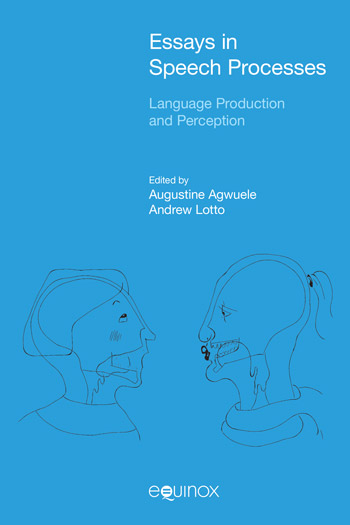Context Effects in Speech: Talker Normalization or Relative Auditory Perception
Essays in Speech Processes - Language Production and Perception - Augustine Agwuele
Antonia Davi Vitela
University of Nevada
Andrew Lotto [+]
University of Arizona
Andrew Lotto is an Associate Professor in Speech, Language & Hearing Sciences. He received his Ph.D. from the University of Wisconsin in Cognitive and Perceptual Psychology. He has held positions at Loyola University of Chicago, Washington State University, University of Nebraska, Boys Town National Research Hospital and the University of Texas.
Dr. Lotto’s research interests are in the perception of complex sounds such as speech and music. Current projects include examining how people learn the sounds of a 2nd language and how one’s native language can interfere with this learning; investigating the ability of listeners to “tune” their perception to the particular characteristics of a speaker (e.g., understanding someone with a foreign accent or disordered speech); and studying how the design of cochlear implants and hearing aids can affect the ability of listeners to understand speech in complex listening environments. Dr. Lotto has collaborations with researchers in Psychology, Linguistics, Audiology, Speech Pathology, Electrical Engineering and Neurophysiology. He has organized the Auditory Cognitive Science Society in order to bring more researchers together from these various fields to focus on complex auditory processing.
Description
Guided by simple, general and neutrally plausible explanation to questions pertaining to speech perception phenomena, we examine a classic speech phenomenon – extrinsic talker normalization – and search for general perceptual explanations. In particular, we present a series of experiments that cast doubt on traditional explanations based on the extraction of talker-specific acoustic-phonetic maps or estimations of vocal tract dimensions. In the place of these theories, we present evidence favoring a general auditory process underlying these effects and provide some speculation about its function beyond speech perception.






